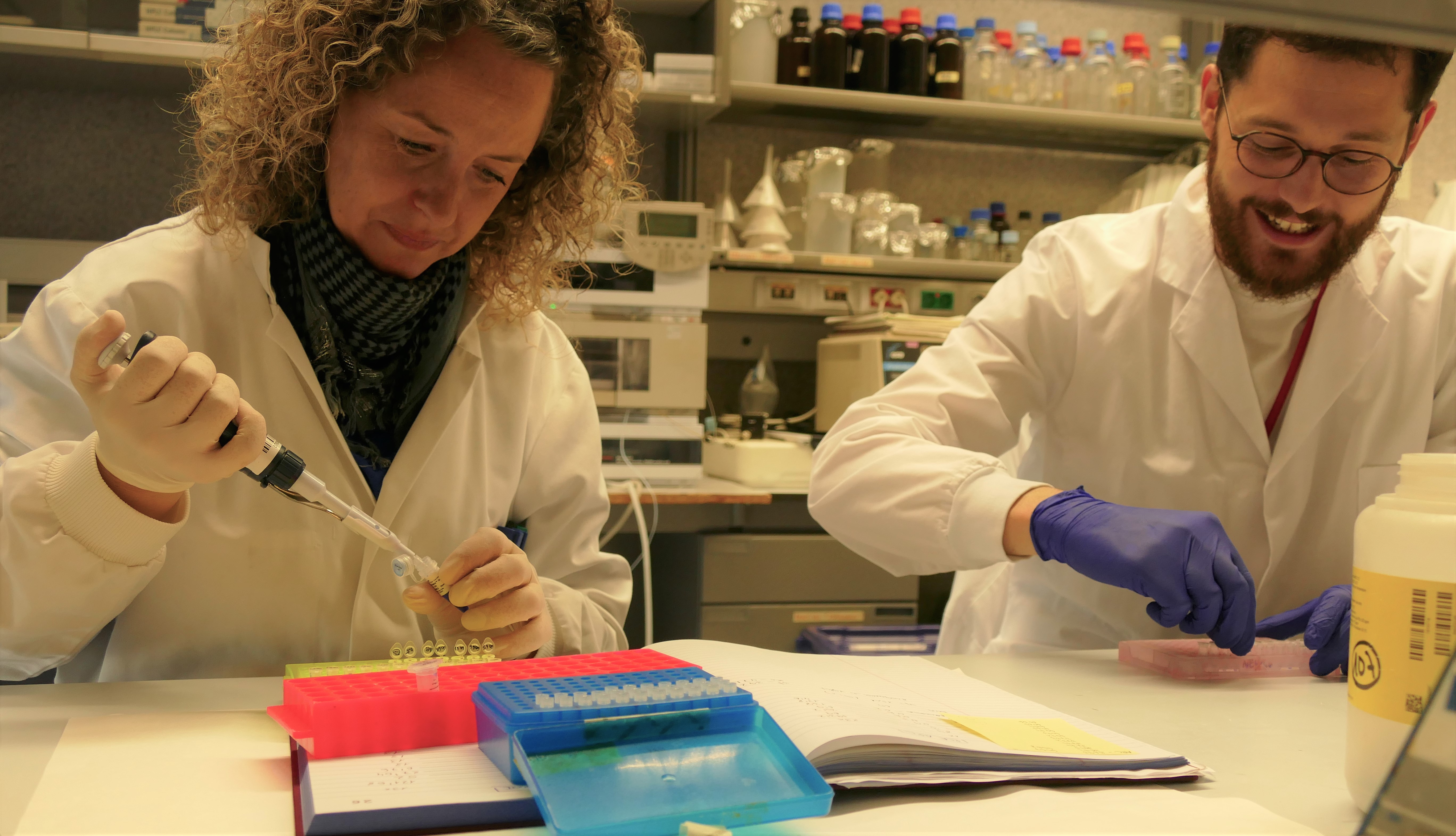UPF and UIC researchers embark on a study to identify neurological dysfunctions from a blood test
UPF and UIC researchers embark on a study to identify neurological dysfunctions from a blood test
Professor Miquel Bosch, a lecturer in Basic Sciences at UIC Barcelona, and Andrés Ozaita, full professor of Pharmacology at the Department of Medicine and Life Sciences at Pompeu Fabra University, are leading a pioneering study that aims to determine whether a blood test can provide information about the brain of people with neurological dysfunctions like autism. This test would enable obtaining objective information about neurological dysfunctions that could replace cognitive or psychological tests.

The professor of the Department of Basic Sciences of UIC Barcelona and principal investigator of the Synaptic Plasticity Laboratory, Miquel Bosch, together with Andrés Ozaíta, a full professor of Pharmacology at the Department of Medicine and Life Sciences (MELIS) at Pompeu Fabra University (UPF) and principal investigator of the Neuropharmacology group at the same centre, have launched a study to determine whether samples obtained from a blood test might become diagnostic and evolutionary biomarkers of neurological disorders such as autism.
Bosch explained that “material of cerebral origin circulates in the blood” and “the important thing is that this material allows obtaining genetic, epigenetic or physiological information about their cell of origin”.
The researchers note that neurons “produce materials, which reach the bloodstream carrying information concerning their own physiological state”. Thus, “they could be a source of information about what is going on in the brain of people with neurological dysfunctions, without the need to invasively access the brain itself, simply by means of a blood sample”. The ultimate goal of the study, according to the researchers, is to test whether “this circulating material can indeed be used as a window to detect the physiological changes of the neurons of people with intellectual impairments such as those on the autism spectrum”.
To carry out the study, they will focus their research on a type of hereditary genetic alteration that leads to intellectual disability and autism spectrum disorder in 30 - 50% of those affected.
The laboratory directed by Andrés Ozaíta will analyse blood samples from transgenic mice presenting this genetic alteration to ascertain whether the biological material obtained maintains the alterations that have already been observed in the brain samples taken from these animals. In addition, they will study whether the molecular changes observed in the brains of the affected mice are found in humans with the same genetic alteration, thanks to the analysis of samples from the biobank of the University of California, Davis (USA). At the laboratory led by Miquel Bosch, they will focus on the study of specialized tissues and analyse the extracellular medium of in vitro cultures of neurons of mice with the same alteration.
“We will analyse in the blood the molecular alterations observed in the brain, as well as the effect that various pharmacological treatments may have on these alterations”, Bosch points out.
According to the researchers, if it works, “a way of monitoring conditions such as autism without the need to directly observe the brain or perform complicated cognitive or psychological tests” will have been discovered.
Biomarkers applicable to neurological and psychiatric diseases
Bosch notes that using material circulating in the bloodstream as a source of biomarkers could be applied to any disease, including neurological and psychiatric diseases, which “are hard to monitor due to the difficulty of obtaining brain biopsies and the complexity of their cognitive symptoms”.
“We are very excited about this project since we know the need that exists in the clinical practice to have new tools to improve patient diagnosis to be able to direct them to one or another treatment with better chances of success”, Ozaíta adds.
The specialists stress that this is the first time that the possible use of material circulating in the bloodstream has been studied for mental illnesses and manifest that the results of their work “could provide very valuable tools to speed up biomedical research in these diseases”. “This is a very comprehensive study that allows comparing changes in animal and cell models with those of patients at the same time, which will enable transferring the treatments tested in these preclinical models to the clinical practice far more quickly”.
The study has been launched thanks to the funding received through TV3’s ‘La Marató’ telethon, dedicated in 2021 to research into mental health diseases. In total, grants have been awarded to 36 research projects led by 81 teams of mental health experts.
